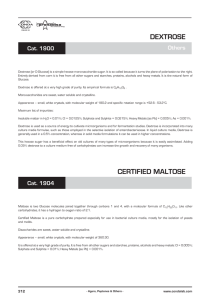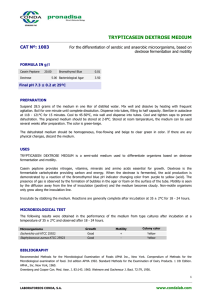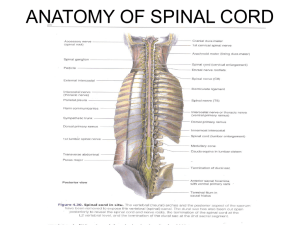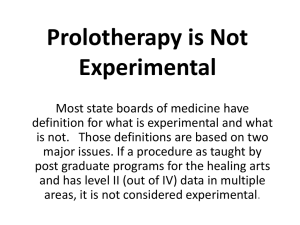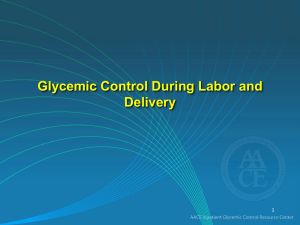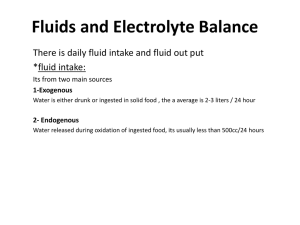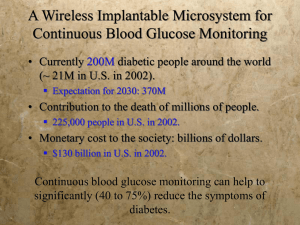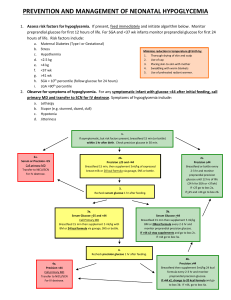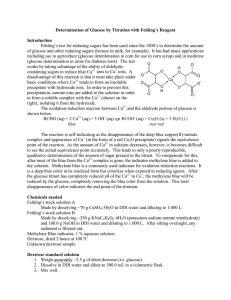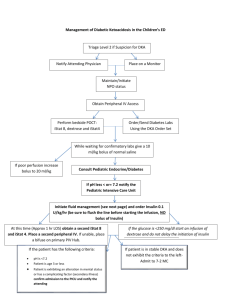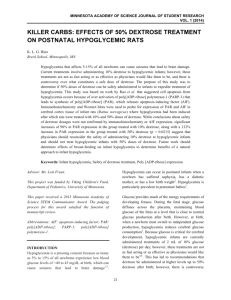I. Pharmacology and Actions
advertisement
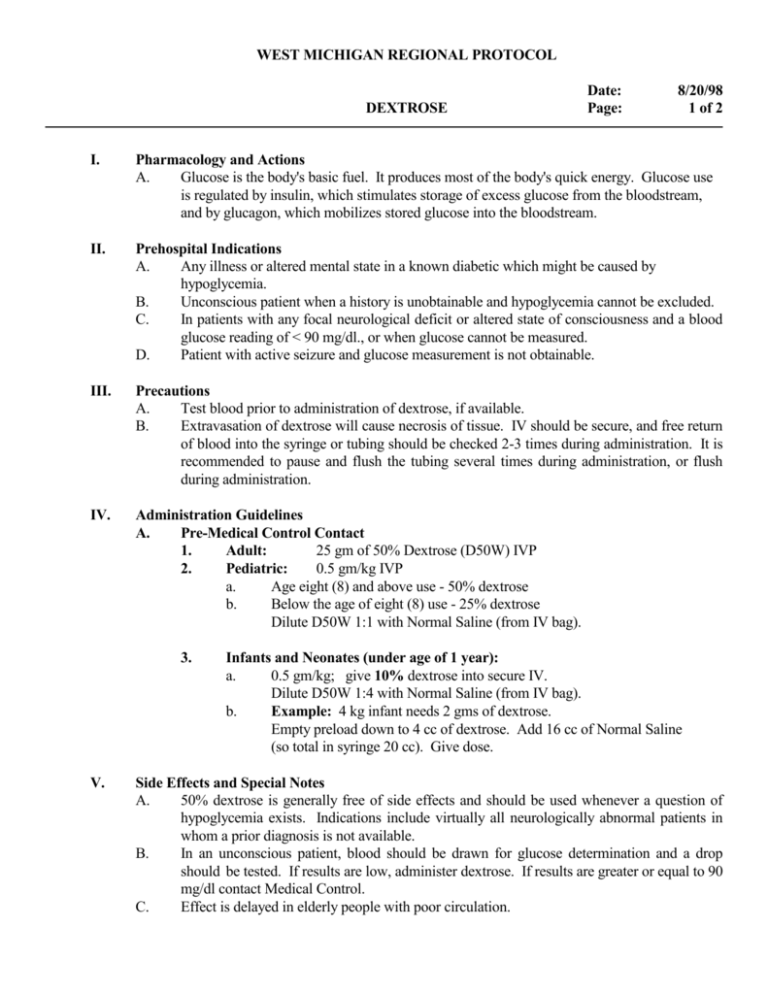
WEST MICHIGAN REGIONAL PROTOCOL DEXTROSE Date: Page: 8/20/98 1 of 2 I. Pharmacology and Actions A. Glucose is the body's basic fuel. It produces most of the body's quick energy. Glucose use is regulated by insulin, which stimulates storage of excess glucose from the bloodstream, and by glucagon, which mobilizes stored glucose into the bloodstream. II. Prehospital Indications A. Any illness or altered mental state in a known diabetic which might be caused by hypoglycemia. B. Unconscious patient when a history is unobtainable and hypoglycemia cannot be excluded. C. In patients with any focal neurological deficit or altered state of consciousness and a blood glucose reading of < 90 mg/dl., or when glucose cannot be measured. D. Patient with active seizure and glucose measurement is not obtainable. III. Precautions A. Test blood prior to administration of dextrose, if available. B. Extravasation of dextrose will cause necrosis of tissue. IV should be secure, and free return of blood into the syringe or tubing should be checked 2-3 times during administration. It is recommended to pause and flush the tubing several times during administration, or flush during administration. IV. Administration Guidelines A. Pre-Medical Control Contact 1. Adult: 25 gm of 50% Dextrose (D50W) IVP 2. Pediatric: 0.5 gm/kg IVP a. Age eight (8) and above use - 50% dextrose b. Below the age of eight (8) use - 25% dextrose Dilute D50W 1:1 with Normal Saline (from IV bag). 3. V. Infants and Neonates (under age of 1 year): a. 0.5 gm/kg; give 10% dextrose into secure IV. Dilute D50W 1:4 with Normal Saline (from IV bag). b. Example: 4 kg infant needs 2 gms of dextrose. Empty preload down to 4 cc of dextrose. Add 16 cc of Normal Saline (so total in syringe 20 cc). Give dose. Side Effects and Special Notes A. 50% dextrose is generally free of side effects and should be used whenever a question of hypoglycemia exists. Indications include virtually all neurologically abnormal patients in whom a prior diagnosis is not available. B. In an unconscious patient, blood should be drawn for glucose determination and a drop should be tested. If results are low, administer dextrose. If results are greater or equal to 90 mg/dl contact Medical Control. C. Effect is delayed in elderly people with poor circulation. WEST MICHIGAN REGIONAL PROTOCOL DEXTROSE D. E. VI. 8/20/98 2 of 2 Do not draw blood for glucose determination from site proximal to an IV containing glucose or dextrose. Glucose measuring devices can be unreliable. When in doubt, give the Dextrose. Utilization A. (II.C.3.) B. (II.C.14.) C. (II.C.11.) DEXTROSE 7/2/98 Date: Page: Altered Mental Status Seizures Neonatal Resuscitation
